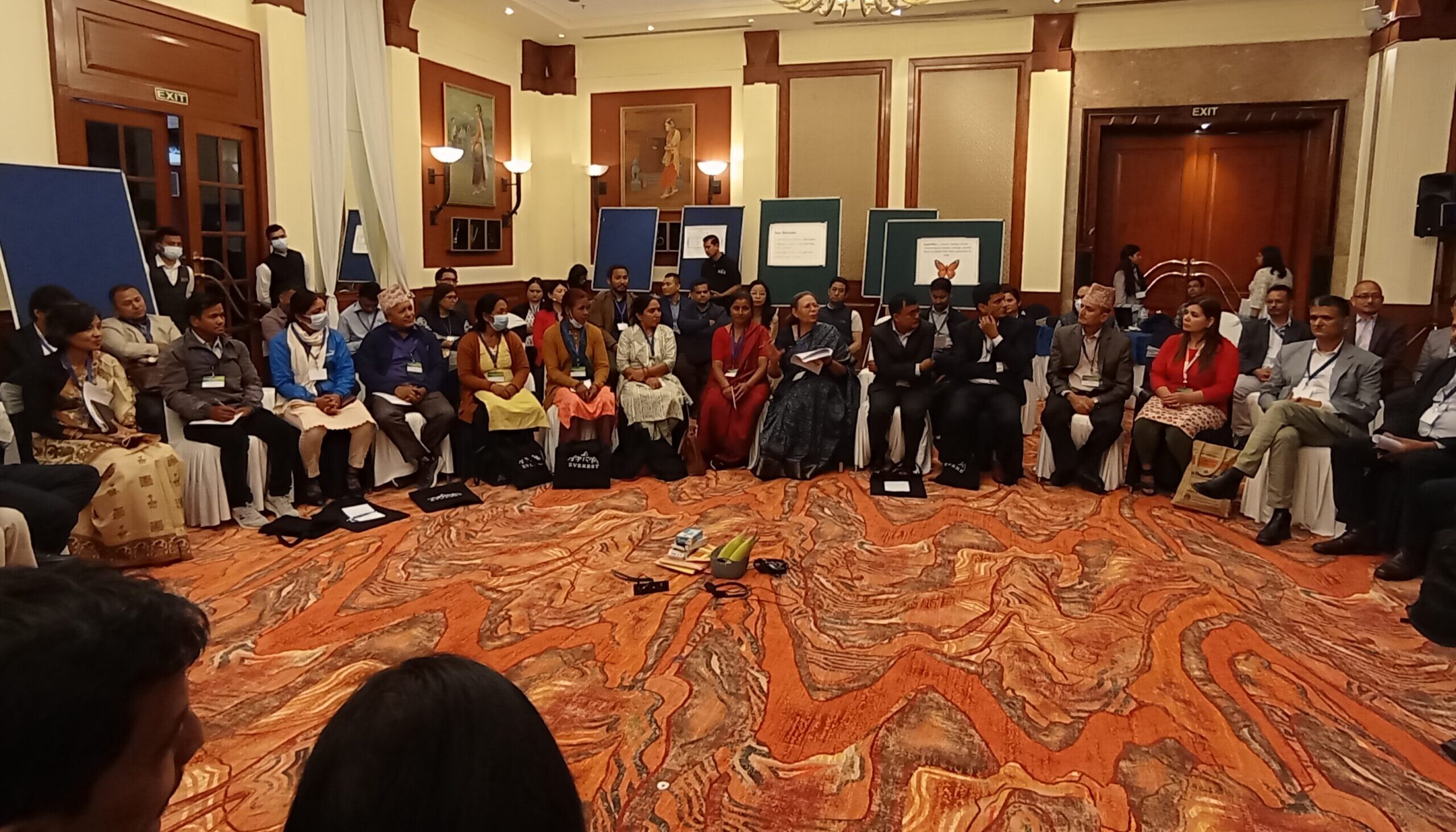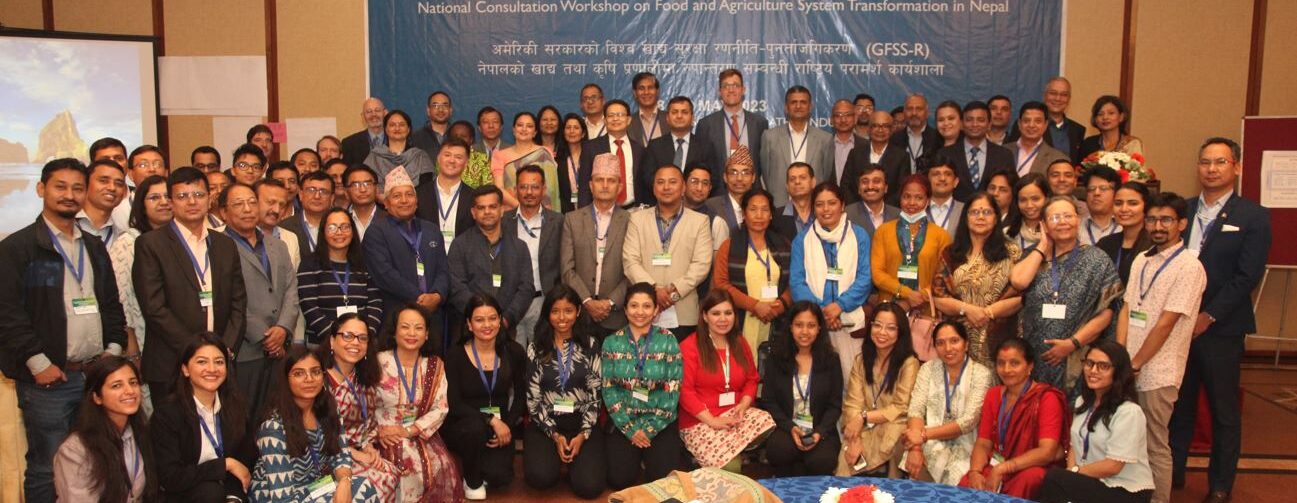May 19, 2023, Kathmandu, Nepal: The International Food Policy Research Institute (IFPRI) and the Institute for Integrated Development Studies (IIDS), with support from the United States Agency for International Development (USAID), organized a national stakeholder consultation workshop on 18 and 19 May 2023 in Kathmandu, to review the United States Government’s (USG) Global Food Security Strategy (GFSS) Nepal Country Plan.
The GFSS is an integrated whole-of-government approach that aims to end global hunger, poverty, and malnutrition through the Feed the Future initiative. Through partnerships that promote agriculture-led growth, build resilience, and improve nutrition, the initiative has been quite successfully implemented in many countries globally, including Nepal. However, issues like the COVID-19 pandemic, international conflicts, and climate change have significantly affected the efforts towards the achievement of food security in the country, among the other sustainable development goals.
“In Nepal, along with food security, we are also dealing with some very specific issues like heavy migration from rural to urban areas, the conflict between humans and wildlife, agricultural areas being turned into infrastructural zones, and the high price of chemical fertilizers”, said Dr. Govinda Prasad Sharma, Secretary, Ministry of Agriculture and Livestock Development.
Considering these evolving concerns and the importance of becoming more responsive to the needs of the people, the USG developed the Global Food Security Strategy Refresh (GFSS-R) 2022-2026 that emphasizes food systems thinking, equity and inclusion, climate mitigation and adaptation, countering the long-term impacts of the pandemic and integrating conflict management, peacebuilding, and social cohesion. USAID Nepal has commissioned IFPRI to support the drafting of the new Feed the Future Nepal Country Strategy, and this national consultation workshop was planned as an important step to bring together the various stakeholders in Nepal on one platform to put forth their views and recommendations to create a vision for this new strategy.
“This is a complex but very important consultation to foster and sustain a discourse towards a food systems approach. Our goal is to develop an inclusive strategy that focuses on improving food and nutrition security as well as strengthening gender balance”, remarked Shahidur Rashid, Director-South Asia, IFPRI.

The workshop saw participation from over 80 national representatives and key stakeholders in diverse thematic discussions encompassing risk and resilience capacity, food system innovation, markets and trade, food system outputs and outcomes, and food system governance and control. The one and half day consultation workshop, facilitated by Dr. Karuna Onta and Dr. Mamata Pradhan, used the ‘whole system in the room’ meeting methodology and saw stakeholders and beneficiaries, including female farmers, sharing constructive ideas and feedback on the interventions implemented in Nepal under Feed the Future initiative and find ways to align the various efforts to achieve an agricultural transformation within Nepal’s economy.
“For us, this workshop is an important opportunity to shift more ownership of our strategy to the people and institutions to drive change at the national and community levels. And for the stakeholders gathered here, it’s an important opportunity to influence a strategy that will guide U.S. Government investments in the near term, and to make a significant impact on Nepal’s development trajectory”, said David Terhune Grist, Agriculture Development Officer, Economic Growth Office, USAID Nepal.
For more information, please contact Ms. Anisha Mohan, Communications Specialist, IFPRI South Asia at a.mohan@cgiar.org and Dr. Aruna Palikhe, Team Leader, IIDS at aruna.palikhe@iids.org.np.
Related Links
- National Consultation Workshop Proceedings
- Media Coverage 1 2

